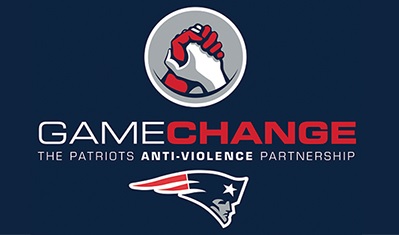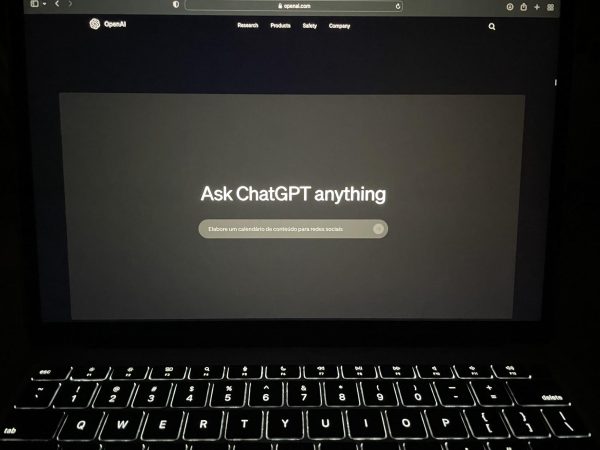Changing the Game on domestic violence

IT WOULD BE EASY to assume that a program called DHS Game Changers run by Physical Education Teacher Mark Gaffney would be about athletics. However, what the student group wants to change is not fun and games but issues of domestic violence, sexual assault, sexual harassment, and homophobia.
The DHS chapter is part of a larger state-wide program, Game Change: The Patriots Anti-Violence Partnership, launched by the New England Patriots Charitable Foundation and the Massachusetts Attorney General’s Office in 2015. Its mission, according to its website, is to implement long-term anti-violence and healthy relationship education in Massachusetts schools, with an emphasis on developing trained high school leaders who can share their knowledge with middle schools. Over 1000 students, teachers, and coaches, representing nearly 100 communities across the state, have been trained in the Mentors in Violence Prevention curriculum run by Northeastern University’s Center for Sport in Society.
Mr. Gaffney was informed of a grant to run the program by Superintendent Bonny Gifford and Assistant Superintendent Michelle Roy and jumped at the opportunity. “I took on the project because I thought it would enhance our Health Curriculum. I also felt it could impact our students in a positive way,” he said.
Mr. Gaffney was trained in the Mentors in Violence Prevention curriculum and then invited students to participate. “They were students I had in classes, and I felt they would be great leaders and committed to the work that needed to get done,” he said. Students were trained in November and have worked since then on how to implement the program. Their first effort took form in Awareness Week, a five day event to start the conversation about these problems and how to prevent them.
On Monday, February 12, students entered DHS to be met with Game Changers offering them lollipops tagged with “Awareness Week Hosted by the Game Changers.” Students then found statistics about teen dating violence and homophobia mounted on paper hearts and taped to every locker. In addition, a banner made by senior Kailey Hummalson hung in the lobby, asking students “Will You Know It When You See It?”
While some students enjoyed the hearts, others were put off by them. They believed the message to be valuable but the juxtaposition between the heart shape and the jarring messages on them was not appreciated. One freshman said, “I thought they were a good idea and informative, but I thought the hearts were kind of weird considering the information on them.”
Others thought the statistics could be hurtful to students with trauma. “The content could be really triggering to people who have been victims of abuse and those whose relatives have been victims,” said one junior. “Normally places that have this sort of content have trigger warnings, but we weren’t informed beforehand. With it taped to your locker, you’re kind of forced to read it.”
The Game Changers are learning from the feedback. Junior Jocelynn Jerome said, “We never meant to trigger students with trauma or make them uncomfortable, we just want people who have experienced it to know they’re not alone. Our goal is to empower people who have suffered and to encourage others to support those who have.”
Game Changers called the following day Start the Conversation Day. Sophomore James George utilized the morning announcements to urge students to watch a video sent to their school emails. The two minute YouTube clip encouraged them to use statistics from the hearts, and personal experience with abuse, to start discussions with their classmates.
However, the video has only been viewed 190 times. Junior Kyle Lamontagne felt that number could be higher if there had been more promotion, especially through social media. “It was only announced once through the morning announcements and through the school emails,” he said. “A lot of the teachers didn’t play the video or talk about it with classes. It wasn’t pushed upon the students enough to watch it and listen.”
On Wednesday the 13th, Keynote Speaker Ashley Bendiksen spoke at two assemblies, detailing her experience as a victim of dating violence and educating the students about the signs and types of abuse. Bendiksen thought her presentation made an impact. “When you look at the audience, you can see people relating, looking uncomfortable, or getting teary-eyed,” she said. “My story is one that teens can relate to, so that’s part of why it can be uncomfortable.”
Bendiksen is grateful for the opportunity to work with the Game Changers and praised the work they were doing. She hopes that by sharing her story, she makes it easier for other victims of abuse to come forward. “I feel like it’s my mission to help others realize they’re not alone,” she said. “The best way to accomplish that is to share my story because it helps people share their own without being ashamed.”
Junior Hannah Carvalho thought Bendiksen’s presentation changed student’s perspectives about the prevalence of unhealthy relationships. “I think a lot of students opened their eyes and realized that this is a real thing, and it could happen to any of them.”
Thursday was the most crucial day of the week. Each grade spent time in small groups working with two Game Changers and an adult facilitator discussing how to be an active bystander to prevent abuse. Groups discussed the importance of bystanders stepping in to situations despite discomfort, different ways to intervene in various scenarios, and whether or not students agreed or disagreed with questions such as whether or not an intoxicated adult can consent to sexual activity.
Freshman Hank Cornell enjoyed working in the smaller groups. “I felt more involved in the group,” he said. “It helped me connect to the other people.”
Game Changers found the students to be easy to work with. Most reported a vast disparity in knowledge between the freshmen and other grades, which they attributed to the health class sophomore year. Junior Rebecca Benoit said, “They all had bystander experiences. Even the freshmen said they have experienced catcalling, but they didn’t seem to understand the extent of unhealthy relationships in our school.”
Junior Ben Rioux was thankful for the opportunity to lead his peers and potentially make an impact. “Students were very respectful and did a great job participating in the discussion,” he said. “The topics that we discussed were very difficult to talk about, so I was very happy to see students actively participating.”
On Friday the 15th, a short assembly was planned to wrap up the week. Mr. Gaffney and Principal Ross Thibault were going to speak, thanking the students for their participation. A short video made by the Game Changers and Media students, showcasing highlights of the week and encouraging students to apply the lessons learned about being an active bystander, was to be shown. Carvalho was also to present the results of a survey students took about the prevalence of dating violence and bias-related harassment at DHS.
The survey results proved how topical the Game Change program was. 64.1% of students reported having been or knowing someone who has been in an unhealthy relationship. 91.8% of students believe sexual assault happens at DHS, and 44.1% have experienced sexual assault or know someone who has. An additional 17.1% was unsure.
Out of the 53.9% students who have attended a party with drugs and alcohol, 34.5% witnessed or may have witnessed a sexual assault. As for issues of homophobia and catcalling, 61.5% of students felt that homophobia was an issue at DHS, and 65.4% have witnessed or experienced derogatory statements or jokes at DHS, such as name calling or catcalling. Out of that percentage, only 21.7% intervened.
However, the assembly was cancelled due to discomforts regarding the school shooting in Parkland, Florida and subsequent remarks making light of the event by a DHS student. “I feel like it was an appropriate thing to do since many students felt unsafe,” said junior Malia Cafasso.
Mr. Gaffney hopes to have the program continue and is reapplying for the grant next year. “I would also like to get more students and faculty involved and possibly start a Game Changers Group at DMS,” he said.









Nicole Sheahan • Apr 5, 2018 at 11:46 pm
Thanks for writing this comprehensive article. As a teacher, I knew about the general outline of the week, but it is interesting to hear from students about their personal experiences with its events. It’s also reassuring to hear the GCs are being reflective about their activities. I was wondering about the stats on the hearts. I was personally taken aback by the combination, but I also figured that was the intent. Part of what we all have to remember, always, is that there are people behind stats, and sometimes when we’re trying to accomplish something for a certain population, we have to remember we don’t know every person’s backstory. Overall, kudos to all the folks who stepped up–and to those willing to step in–to change the game.